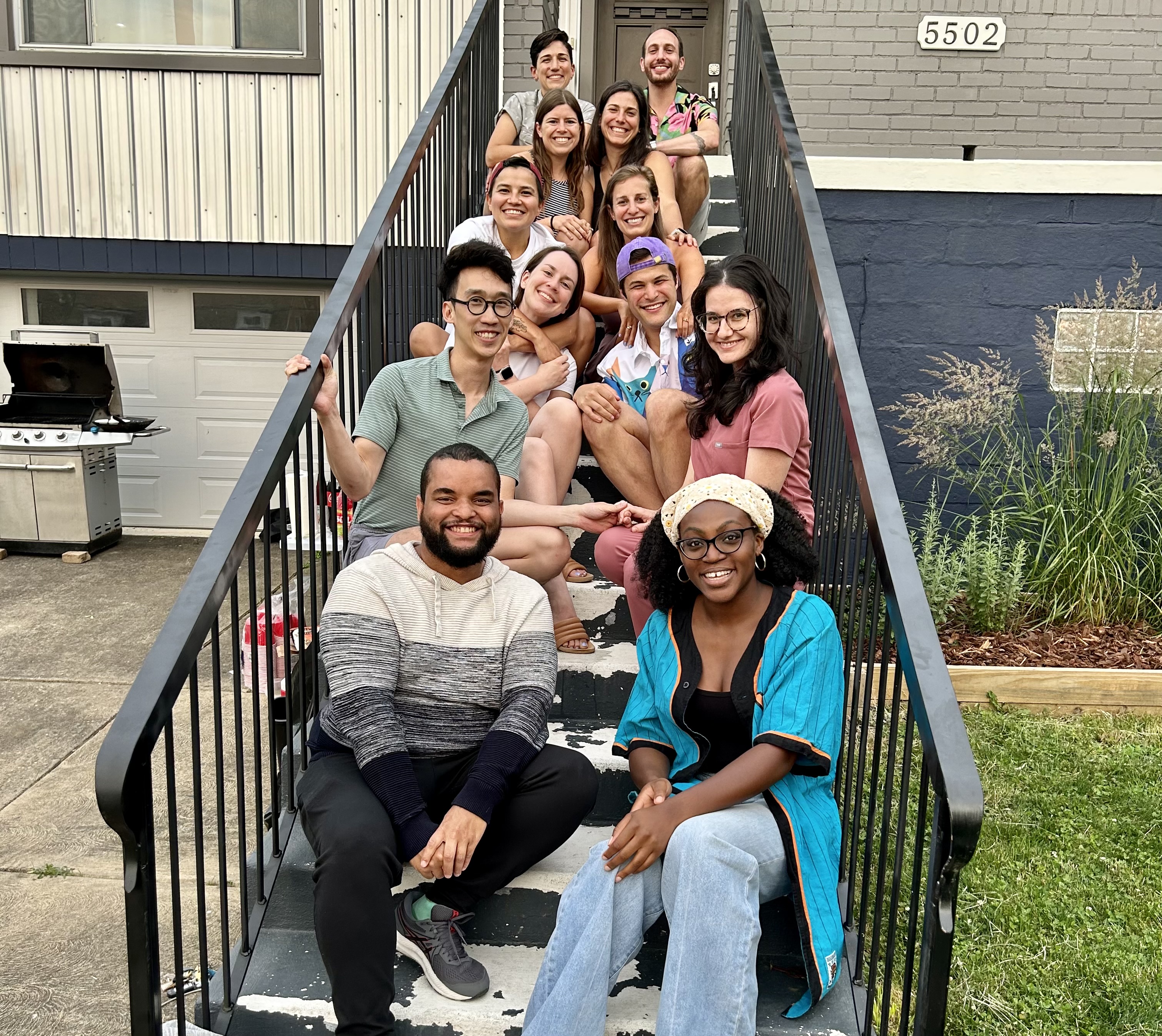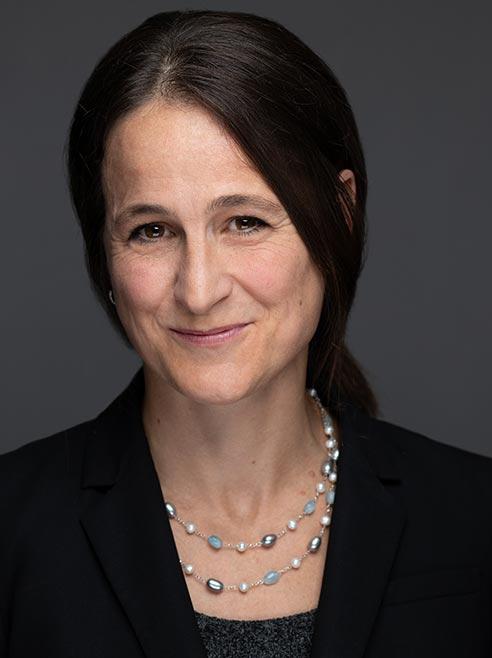The program brings together premier programs in psychiatry (child, adolescent, and adult) at UPMC Western Psychiatric Hospital, and pediatrics at the Children’s Hospital of Pittsburgh of UPMC. Both institutions are consistently ranked among the top hospitals in the nation, and their partnering Departments rank in the top ten nationally for National Institutes of Health grant funding.
Medical students who are interested in our Triple Board Program have the opportunity to participate in the Triple Board Acting Internship.
Our Training Sites
UPMC Western Psychiatric Hospital is well-known and highly regarded for its inpatient and outpatient programs, community services and specialized programs, including services in ADHD, bipolar disorder, eating disorders, child development, pediatric OCD, teens at risk for suicide, and treatment for early psychosis.
The Children’s Hospital of Pittsburgh of UPMC is renowned for its outstanding clinical services, research programs and medical education. Highlighted features and affiliates of the hospital include the Brain Care Institute, the John G. Rangos Sr. Research Center, and integrated care through Children’s Community Pediatrics.
Our Triple Board Residents
Each year, two Triple Board residents from our Department join Pediatric and Psychiatry residents, along with residents in combined residency training programs, such as Internal Medicine-Pediatrics, Family Medicine-Psychiatry, and Pediatric Neurology. The TBP actively incorporates and integrates a combination of pediatrics, psychiatry, and child psychiatry into each of the five years of training. Over the course of the program, residents complete 24 months of pediatrics, 18 months of general psychiatry and 18 months of child and adolescent psychiatry.
The TBP provides an integrated educational experience, with graduated responsibility for patient care and teaching. Interaction with pediatric and psychiatric resident colleagues is ongoing, both in clinical settings and within educational sessions. The formal educational curriculum is, on average, five to six hours of classroom instruction and experiential learning per week, occurring longitudinally throughout the five-year program. In addition, pediatric and/or child psychiatry faculty supervisors regularly meet with residents to provide mentorship and discuss clinical issues encountered in all training experiences.

Residents in the TBP are encouraged to develop areas of interest and expertise, both professionally and personally. Take a look at our Career Development page to learn about the different opportunities available to our TBP residents.
Interested in learning more about our Triple Boarders? You can read about them on our current and past Triple Board resident pages.
The main focus of the PGY1 year is pediatric medicine. TBP interns begin their training with 10 months of pediatric rotations during which they work on both general pediatrics and subspecialty inpatient teams, including hematology, oncology, neurology, pulmonology, gastroenterology, nephrology, endocrinology, emergency medicine and neonatal medicine. TBP interns have 6 weeks of night float, as well as weekend call while on these inpatient rotations.
During intern year, the pediatric primary care experience begins with four weeks of ambulatory medicine and a half-day per week continuity clinic that continues for all five years of the program. Continuity clinic gives residents the opportunity to learn outpatient pediatrics and childhood development while building relationships with patients and their families over time.
Interns also spend two months training in psychiatry by working in the UPMC Western Psychiatric Hospital Psychiatric Emergency Service (PES), which provides the opportunity to learn acute diagnosis and management of a wide variety of psychiatric illnesses in an acute care setting. Two weeks of night shifts during the PES rotation allow for independent development of skills under one-on-one guidance of psychiatric emergency medicine physicians.
Psychiatry didactics begin for one afternoon per week during the second half of the year and focus on the fundamentals of psychiatry, including pharmacology, and dynamic and evidence-based therapies.
| Pediatrics | |
| Time Period | Rotations |
| 6 months | Inpatient Units |
| 1 month | Neonatal Unit |
| 1 month | Emergency Room |
| 2 months | Primary Care/Newborn Nursery |
| Psychiatry | |
| Time Period | Rotation |
| 2 months | Psychiatric Emergency Service (PES) |
TBP residents return to pediatrics for the first half of the second year. A variety of experiences include inpatient senior resident, night-team senior resident, critical care medicine (Neonatal ICU and Pediatric ICU), Adolescent Medicine, Developmental Pediatrics, and subspecialty elective time.
There are several pediatric rotations that allow TBP residents to integrate psychiatric and pediatric skills by working closely with patients and their families, including Adolescent Medicine, and Developmental Pediatrics.
Midway through second year, TBP residents transition to psychiatry and spend a month on each subspecialty psychiatric inpatient unit, including Adult Mood Disorders, Psychosis, and Dual Diagnosis. The schedule also includes eight weeks on Adult Consult and Liaison and four weeks on Adult Neurology at a large tertiary care adult medicine hospital within the UPMC Health System. Residents continue to take weekend call during inpatient rotations for both pediatrics and psychiatry.
Rotations aimed at skills integration in the PGY2 year include four weeks of Adolescent Acute Partial Hospitalization Program (AAPHP) and two weeks of Pediatric Behavioral Health Consult & Liaison Service at CHP. This allows TBP residents to further develop their assessment skills and manage patients utilizing their knowledge from both pediatrics and psychiatry.
TBP Residents continue to see patients in their pediatric continuity clinic every other week for one half-day and attend psychiatric didactics one half-day per week throughout residency training. Second year also gives TBP residents their first opportunity for adult psychotherapy with a focus on Interpersonal Psychotherapy (IPT).
| Pediatrics | |
| Time Period | Rotations |
| 2 months | CDU/Adolescent |
| 1 month | Elective |
| 1 month | Pediatric ICU |
| 1 month | Neonatal ICU |
| 1 month | Inpatient Senior Resident |
| Psychiatry | |
| Time Period | Rotations |
| 4 months | Inpatient Units/AAPHP |
| 1 month | Adult Neurology |
| 2 months | Adult and Child/Consult-Liaison |
Note: Residents continue to see patients in the pediatric continuity clinic throughout the year and begin adult Interpersonal Psychotherapy (IPT).
At the beginning of the third year, TBP residents transition back to pediatrics with rotations as inpatient senior (six weeks), subspecialty electives (twelve weeks, including four weeks of Child Neurology, two weeks of Endocrinology, and two weeks of Hematology/Oncology), night team senior (two weeks), Emergency Department (one month), and ambulatory pediatric clinic senior (two weeks). Residents continue to take weekend call during inpatient rotations for pediatrics.
The outpatient pediatric subspecialty clinics, in particular, allow residents to explore and develop knowledge in areas of personal interest. In addition, the clinics provide valuable exposure to the psychological impact of chronic disease and help residents to develop the skills necessary for helping patients and their families cope with both the psychiatric and medical aspects of their care.
The second half of the year is devoted to outpatient psychiatry clinics. One of the highlights of the third year is working in the Triple Board clinic alongside the senior TBP residents. This clinic provides psychiatric care to pediatric patients with complicated medical histories. The clinic is supervised by faculty who are interested in the integration of care, and most of whom are Triple Board graduates. Other psychiatry clinics during this portion of training include adult mood disorders, geriatric psychiatry, and early psychosis. There is also opportunity for outpatient psychiatry electives.
The TBP residents’ adult psychotherapy training continues with emphasis on Cognitive Behavioral Therapy (CBT) and longitudinal psychodynamic psychotherapy. Didactics focus on dialectal behavioral therapy, group and family therapy and advanced psychopharmacology.
| Pediatrics | |
| Time Period | Rotations |
| 1 month | Electives |
| 1 month | PICU |
| 1 month | Emergency Room |
| 2 months | Inpatient Senior Resident |
| 1 month | Outpatient Pediatric Neurology |
| Psychiatry | |
| Time Period | Rotation |
| 6 months | Outpatient Adult Psychiatry and Triple Board Continuity Clinic |
Note: Residents continue to see patients in the pediatric continuity clinic throughout the year and adult psychotherapy training continues with an emphasis on CBT.
In the fourth year, four months are spent on pediatric-rotations, which are comprised of 10 weeks of subspeciality pediatric electives and 2 weeks in the CHP Emergency Department. This completes the required pediatric portion of training. This organization of clinical experiences is helpful in studying for the pediatric board exams, which are typically taken in the fifth year.
The rest of the year is concentrated in Child and Adolescent Psychiatry. Experiences include four months on inpatient units including general child and adolescent psychiatry and a sub-specialized unit dedicated to the care of individuals with autism and neurodevelopmental disabilities. Additional experiences include the Adolescent Acute Partial Hospitalization Program (AAPHP) and the Pediatric Behavioral Health Consultation & Liaison Service at CHP. One month is also reserved for child psychiatry elective time.
During this academic year, TBP residents take call from home for the Pediatric Behavioral Health Consultation & Liaison Service for an average of seven weeks throughout the academic year.
TBP residents also begin pediatric longitudinal psychotherapy with a minimum of two child and adolescent patients (child CBT and child psychodynamic). The latter two experiences continue throughout the remainder of training. TBP residents also learn parent management training (PMT).
| Pediatrics | |
| Time Period | Rotations |
| 2 weeks | Emergency Room |
| 4 months | Electives |
| Child & Adolescent Psychiatry | |
| Time Period | Rotation |
| 4 months | Inpatient Child & Adolescent Units |
| 2 months | AAPHP |
| 2 months | CHP Consult Liaison |
Note: Residents continue to see patients in the pediatric continuity clinic, the Triple Board continuity clinic, and engage in adult and child long-term psychotherapy and child CBT.
Child and adolescent psychiatry training is completed in the final year of the TBP. During this time, residents complete their final core rotation with a focus on early childhood development at the Matilda H. Theiss Child Development Center. They also continue their child and adolescent outpatient continuity clinic for one half day per week and participate in multidisciplinary family therapy training one half day per week for four months. This clinic is supervised live via a one-way mirror by two instructors who provide immediate feedback and guidance for the development of family therapeutic skills.
The predominant focus of the final year is on outpatient experiences and elective training. Required outpatient experiences include forensics, adolescent dual diagnosis, school consultation, as well as, child and family psychotherapy clinics. A wide variety of outpatient subspecialty electives are available including: pediatric bipolar disorder, obsessive-compulsive disorder, adolescents at high risk for suicide and non-suicidal self-harm, autism and developmental disorders, attention and hyperactivity disorders, eating disorders, integrative medicine, and transition to college and early-adulthood.
Residents are also allowed to create new elective experiences that are relevant to their career goals. These may be fully resident-created or may include choosing from other available clinical experiences, such as team leader electives in inpatient or outpatient services, alternative and complementary medicine, and evidence-based psychotherapies in the care of medically ill children. In addition, non-clinical experiences in systems of care, managed care, educational or administrative activities, and research are available. Interested residents may also participate in our Public Service Psychiatry Fellowship or pursue certification in Electro-Convulsive Therapy.
Application information can be found on our how to apply page. Questions about the program should be sent to the Director of Triple Board Residency Training (Dr. Jacobson) or the Associate Program Director (Dr. Schreiber):

